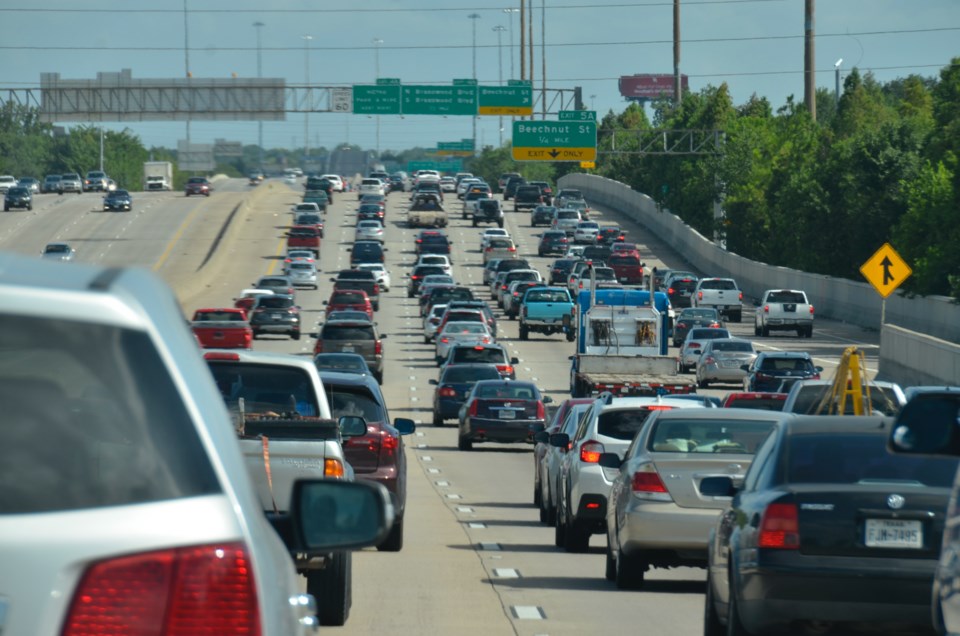BarrieToday welcomes letters to the editor at [email protected]. Please include your daytime phone number and address (for verification of authorship, not publication).
*************************
The provincial conservative government has decided to prioritize highway proposals like the 413 and the 'Holland Marsh Highway' in their re-election campaign as a means of addressing the pressing issue of gridlock around the GTA.
But this promised solution, is it really going to solve the problem?
First, let’s look at the math. A bus holds more people in the same space taken up by cars, right? Buses can carry more people with more spatial efficiency from point A to point B, thus relieving congestion pressure on the roadway.
If gridlock is the issue, then we have to name the car for what it is: An inefficient people mover and a road-space hog.
Any sensible solution to gridlock would automatically centre more efficient modes of people-moving, modes other than individual, clunky cars. Yet that is not the focus of this gridlock plan.
The other thing I haven’t heard is anyone in this government wondering is: Why are so many people finding themselves stuck in gridlock in the first place?
If you reduce the need for people to be on the road, you reduce the number of people on the road, thus you reduce the pressure on the road. Ergo: no gridlock.
A true solution to gridlock would include encouraging ways for people to get what they need without having to drive so far and so often at the same time to get it.
I don’t hear that being looked into, either. Instead, it is the singular, unimaginative call for ‘more roads’.
There is an aura of familiar petulance about this, yes?
‘We built roads before. Why can’t we just do it again?’ is just such an old-fashioned, long-standing societal premise that, in 2021, has overstayed and needs to end.
There's nostalgia in this for a time in the past when we thought we could get away with it.
Remember when moving to the suburbs seemed like an ideal way to live?
Remember when the status symbol of modern success was a car and a house of one’s own?
Remember when ‘we’ thought we had the space for this particular entitlement… land spacious enough to accommodate more pavement, more houses, the atmosphere spacious enough to accommodate more carbon?
Just growth, idyllic growth, until — what a minute, you’re stuck in the suburbs, in a ‘suburban desert’. You can’t get anything you need here without a car, so it’s not really a status symbol anymore, but a necessity and it sucks to be you if it breaks down or you can’t afford one in the first place.
This idyll wasn’t intended for everyone, after all.
So many inconveniences are baked right into suburbia's flawed design.
Car dependency. Long commutes. Disconnection from each other. Isolation. Farmland paved over, watersheds rendered ineffective, increased carbon emissions and global warming, soil erosion, less trees. Less space to be in nature, less easily…and yes, with everyone, out of necessity, trying to get everywhere all the time by car: the dreaded gridlock.
We have lived this scripted ‘solution’ over and over already. It doesn’t work.
If we want ease, connection and efficient movement in our near future, it’s time to release the dream that more outwards growth, more roads, cars, and sprawl, will give it to us.
We must release any nostalgia for a time when the future seemed like it would add up differently, because that equation has proved itself diabolically incorrect.
There are ways we can design (and redesign) communities to cultivate more communal ease, connection and efficiency, ways that align with a clearer vision of what is real right now.
We need leaders eager to seek solutions that will actually solve rather than pander to a fading nostalgia built upon nothing that will actually support us.
Julie Johnson
Oro-Medonte Township
*************************



